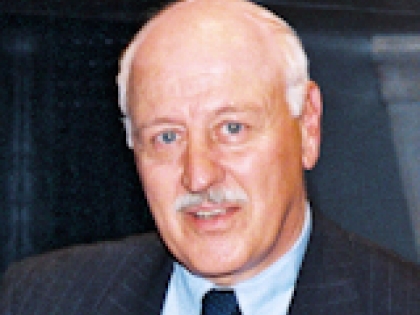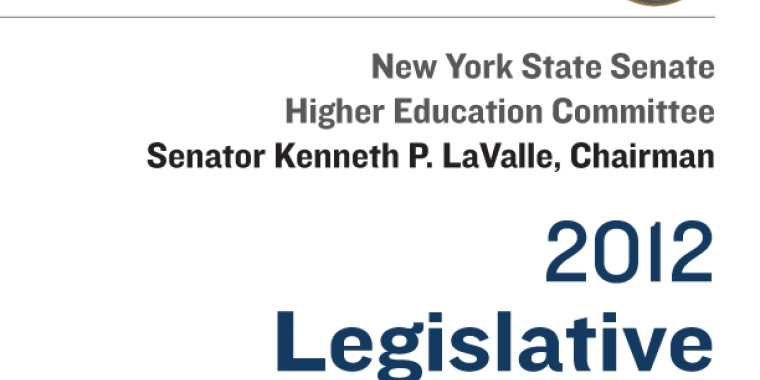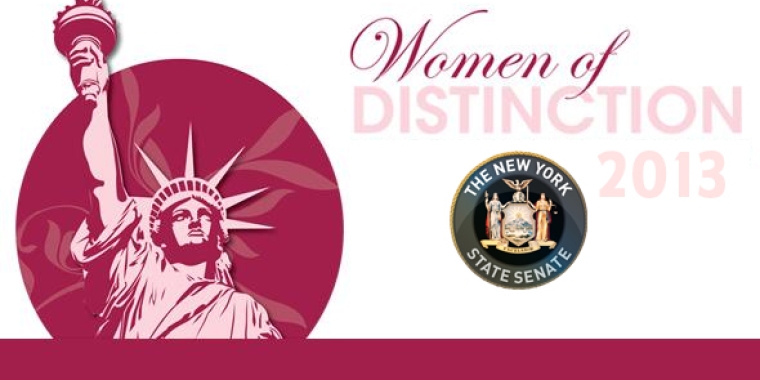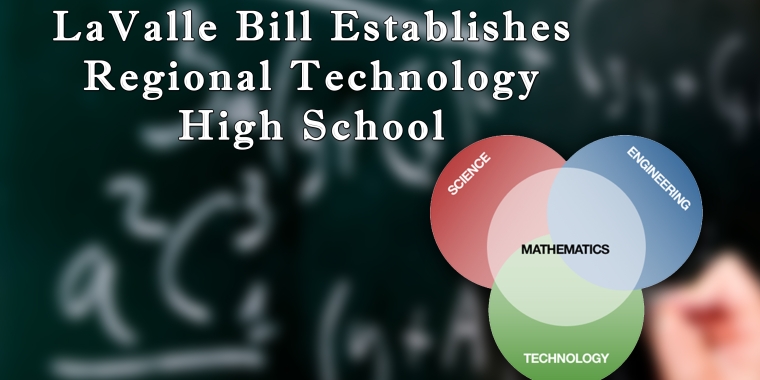
LaValle: START-UP NY and EPCAL Create Unique Synergy
Kenneth P. LaValle
June 24, 2013
New York State Senator Ken LaValle (R-C-I, Port Jefferson)m announced that the New York State Senate, in a new, significant initiative to create jobs and strengthen the state’s economy, gave final passage last week to legislation (S5903) to establish the SUNY Tax-Free Areas to Revitalize and Transform Upstate (START-UP NY) program that will create tax-free areas around the state’s colleges, universities and other designated areas. Senator LaValle said START-UP NY combined with the recently passed Enterprise Park at Calverton Reuse and Revitalization (EPCAL) legislation creates a unique synergy for Long Island and the East End
“Linking higher education with bio-tech, technology and energy businesses will produce good paying jobs for Long Islanders and establish an environment in which we can compete with areas like Silicon Valley," Senator LaValle said.
“Combined with my bill providing for an expedited approval process at EPCAL, we are now uniquely situated to incubate and grow new businesses,” Senator LaValle said. “The nearby incubators at Calverton and Stony Brook University will act as feeders to new businesses that, once established and growing, can potentially site themselves at EPCAL. Additionally, the Southampton Campus of Stony Brook will provide the perfect environment for potential START-UP NY businesses and research.”
Senator LaValle thanked Assemblyman Fred Thiele for his efforts on the EPCAL legislation. Assemblyman Fred Thiele sponsored and passed the EPCAL legislation in the Assembly even though he does not represent the 2nd Assembly District. The 2nd Assembly District seat has been vacant since Dan Losquadro was elected as Brookhaven Town Highway Supervisor.
"Passage of the EPCAL legislation will help ensure that redevelopment of the property is expedited while at the same time ensuring a stringent planning and environmental review program is implemented. The future potential of this site is bright. The redevelopment of EPCAL will help stimulate economic growth and recovery on the East End of Long Island."
The START-UP New York program will create tax-free areas around the state’s colleges and universities. Tax-free areas will encompass vacant land or space on the campus of SUNY schools and community colleges.
Under the program, businesses will be virtually exempt from all taxes for 10 years, including the following:
> No corporate income and no personal income taxes on business income;
> No sales and use taxes on personal tangible property and services purchased by businesses;
> No real property taxes due on property owned by a college or university; and
> Employees working at the business will be authorized to claim a personal income tax deduction equal to the wages earned from the business in the tax-free area.
The personal income tax deduction will apply to all wages and salaries in the first five years of tax benefits. In the remaining five years, for single individuals, heads of households, and married couples the deduction will apply to the first $200,000, $250,000, and $300,000 of wages, respectively. The total number of new employees eligible for the personal income tax deduction will be capped at 10,000 per year.
At SUNY schools and community colleges in Westchester County, New York City, and on Long Island, tax-free areas will be limited to on-campus projects and businesses locating in the tax free areas will have to be high-tech/bio-tech or start-ups. START-UP NY tax-free areas will also apply to five CUNY schools, one per borough.
In addition, up to three million square feet of property will be eligible to be tax-free areas at private colleges, including 75,000 square feet per county in Nassau, Suffolk and Westchester counties and each of the five boroughs of New York City.
Businesses will not be eligible if they compete with existing businesses in the community that are not within the tax-free area. The following types of businesses would not be eligible for the program:
-- Retail, wholesale, or personal service businesses;
-- Restaurants or hospitality businesses;
-- Real estate brokers or real estate management companies;
-- Law firms; or
-- Medical or dental practices
In addition, business incubators affiliated with a SUNY school will be considered tax-free areas and the Empire State Development Corporation (ESDC) will be able to designate 20 strategic state assets as tax-free zones, including property owned by the state that is closed or vacant such as closed prisons, mental health institutions and youth facilities.
When locating tax-free zones off campus, colleges and universities are encouraged to identify underutilized properties, such as vacant industrial parks and manufacturing facilities.
The bill was sent to the Governor for his consideration.
Share this Article or Press Release
Newsroom
Go to Newsroom2012 Higher Education Legislative Report
January 28, 2013

Senator LaValle Seeks 2013 Woman of Distinction
January 23, 2013

